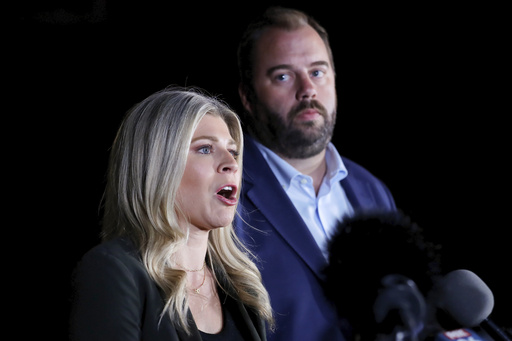
AUSTIN, Texas — In a recent development, Robert Roberson, a Texas man whose execution was postponed due to intervention from lawmakers questioning his conviction, is anticipated to provide testimony before a state House committee on Monday. This comes just days after he was initially slated to face lethal injection for the alleged murder of his 2-year-old daughter.
Roberson’s case is particularly notable as it would have made him the first individual in the United States executed based on a murder conviction tied to shaken baby syndrome. His assertions of innocence have garnered support from lawmakers across both major political parties, who contend that he was convicted using outdated scientific methods.
Once Roberson presents his testimony, prosecutors could request a new death warrant at any time, as stated by Gretchen Sween, one of his defense attorneys. While lawmakers sought to have him physically moved from death row for the testimony, the state attorney general’s office indicated he would appear via video conference instead.
Following repeated unsuccessful attempts to have Roberson’s life spared through the courts and Texas’ parole board, legislators resorted to an unconventional strategy last Thursday by subpoenaing him as a way to extend his time. Members of the House committee expressed their dissatisfaction with Texas’ junk science statute, which they argue has not functioned as intended, particularly in Roberson’s situation.
The 2013 law was designed to allow individuals convicted of crimes to seek relief when evidence presented against them is deemed unreliable. Initially praised as a progressive safeguard against wrongful convictions grounded in flawed science, Roberson’s advocates claim his case underscores significant deficiencies within the judicial framework. They assert that the law has been undermined by intentional misinterpretations from the state’s highest criminal court.
Over the past decade, there have been 74 applications reviewed under this junk science statute, with a third of these submitted by individuals facing the death penalty. None have been successful. District Attorney Allyson Mitchell, who oversaw Roberson’s prosecution, previously informed the committee that a court hearing last year evaluated new evidence from Roberson’s legal team, but the judge ultimately dismissed these claims.
Roberson was sentenced to death for the death of his daughter, Nikki Curtis, in 2002. Prosecutors contended that the girl’s death was the result of severe head trauma caused by violent shaking. In contrast, Roberson’s defense argues that the bruises observed on Curtis could have arisen from complications related to severe pneumonia rather than from abuse.
A coalition of nearly 90 lawmakers, along with prominent medical experts and bestselling author John Grisham, have appealed to Texas Governor Greg Abbott to halt Roberson’s execution, but Abbott has yet to make any comments regarding the case. Furthermore, the Texas parole board has denied requests for clemency.
